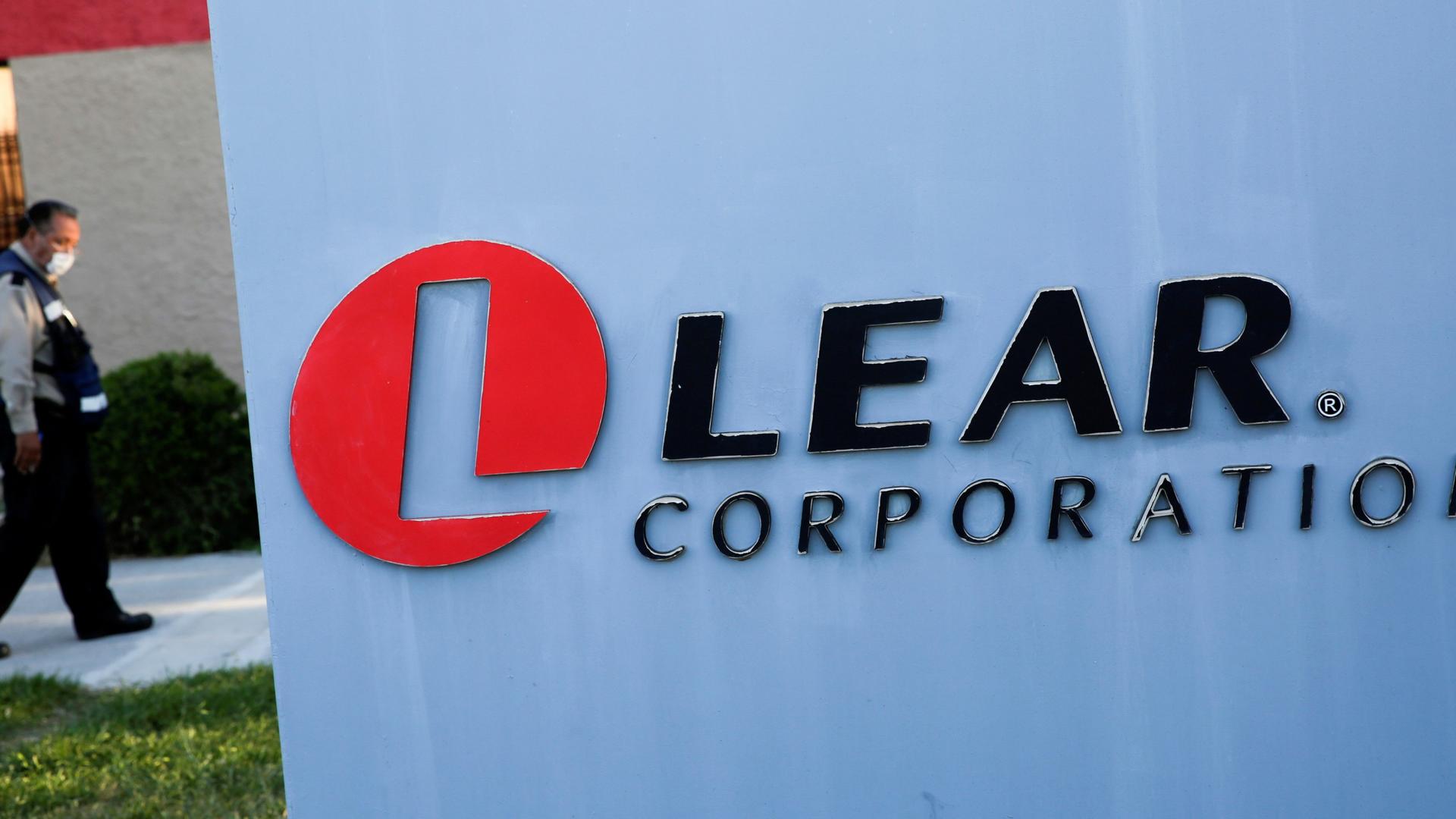The logo of Lear Corporation, a Michigan-based car seat maker, is pictured at one of their premises closed after some workers have died from respiratory illnesses, during the coronavirus disease (COVID-19) outbreak, in Ciudad Juarez, Mexico, April 16, 2020.
The coronavirus pandemic has posed a dilemma for world leaders: If we wait too long for a vaccine, we’ll do severe damage to our economies.
It’s a terrible calculation that politicians, business leaders and scientists are weighing — open things up, but at what cost to human life?
Related: As the coronavirus drags on, Mexico’s food prices soar
It’s an even trickier equation in a globalized world. The Trump administration and some major American manufacturers are antsy and pressuring Mexico to reopen factories. They want North American supply chains rolling again.
Corporate America has benefited from lower wages and laxer health, safety and environmental strictures in Mexico for decades. And they rely heavily on intertwined supply chains between the two countries that fueled $614.5 billion in US-Mexico trade last year, according to the US Census Bureau.
With the Mexican infection curve several weeks behind the US epidemic, experts say workers are right to be concerned about returning too quickly. As of Tuesday, Ciudad Juarez had the largest concentration of coronavirus in Chihuahua state, with 418 cases and 97 deaths.
Related: Pandemic disrupts remittances, leaving immigrants’ families without lifelines
Jorge Guajardo is a former Mexican ambassador who now works for McLarty Associates in Washington, DC. He spoke with The World’s host Marco Werman about the complexity of reopening American factories in Mexico before the country has hit its peak for the coronavirus, anticipated on May 8.
Marco Werman: Ambassador, Mexican President Andrés Manuel López Obrador is under enormous pressure to reopen US factories in Mexico. But it appears the spread of the coronavirus has not even reached its peak yet in Mexico. How important is it to get these factories up and running?
Jorge Guajardo: There are several angles to that question. And yes, you’re right. The peak is supposed to hit Mexico on May 8. Clearly, this is a time in which Mexico has got to be very careful in how it goes about opening up its economy. At the same time, Mexico took measures at shutting down many industries that were allowed to operate in other countries as the pandemic progressed…So, there’s been also some confusion by manufacturers in why Mexico is closing certain industries that were either deemed essential in other countries or allowed to operate — even if not deemed essential. So, there’s been some confusion on what industries can and should operate, while at the same time making sure that the government looks after the health of its citizens. And we have to be very careful about how we go about reopening the economy.
Right. And it’s not just that on May 8, you hit the peak and everything is fine again. You still have to flatten the curve and keep on flattening it. The US ambassador to Mexico, Christopher Landow, warned that if Mexico does not open its factories, it will cost Mexico jobs. Are you worried that if Mexico doesn’t open up factories, American companies will take their work elsewhere?
Yes and no. No, because companies that started production in Mexico did not do so to create Mexican jobs. They did so because it benefited their bottom line. And that will be the case in a post-COVID world. They’ve done well. They have a free trade agreement so they have everything going for them. On the other hand, these are great opportunities for Mexico to capitalize on the reshaping of the supply chain. Probably, as companies move out of China, they may consider setting up shop in Mexico. However, after all this confusion and lack of clarity from the Mexican government, it will certainly raise questions on US company boards when they say, what’s happening in Mexico? Why is our supply chain all of a sudden interrupted? And what are we doing to address this?
Do you have enough sense of how willing President López Obrador is to put people’s health and livelihoods at risk to satisfy the US pressure to open those factories?
That’s a good question. I hope that won’t be the criteria. Like every president around the world, he’s weighing the pros and cons, the challenges it represents for the economy — the longer you stay closed and lose opportunities for supply chains — while at the same time, try to capitalize on a regional trading bloc that we’ve established. But without putting your citizens’ health at risk — it’s a difficult equation.
Many of the factories in Mexico that are slated to reopen are in COVID-19 hotspots like Tijuana and Ciudad Juarez. There are people in Mexico who worry that Mexico will repeat Italy’s mistake, keeping factories open until it was too late to control the spread. So, what leverage do health officials in Mexico actually have? Like. Who is the Anthony Fauci of Mexico and what do they say?
So, Mexico has sort of put all of the COVID-19 strategy in the hands of one undersecretary of health [Hugo López-Gatell] who’s been somewhat controversial. So we’re all in the hands of somebody who’s determining the policies of the entire country, but he’s not in contact with the rest of the actors or sectors. So, that makes it complicated.
This interview has been edited and condensed for clarity. Reuters contributed to this report.
Our coverage reaches millions each week, but only a small fraction of listeners contribute to sustain our program. We still need 224 more people to donate $100 or $10/monthly to unlock our $67,000 match. Will you help us get there today?
